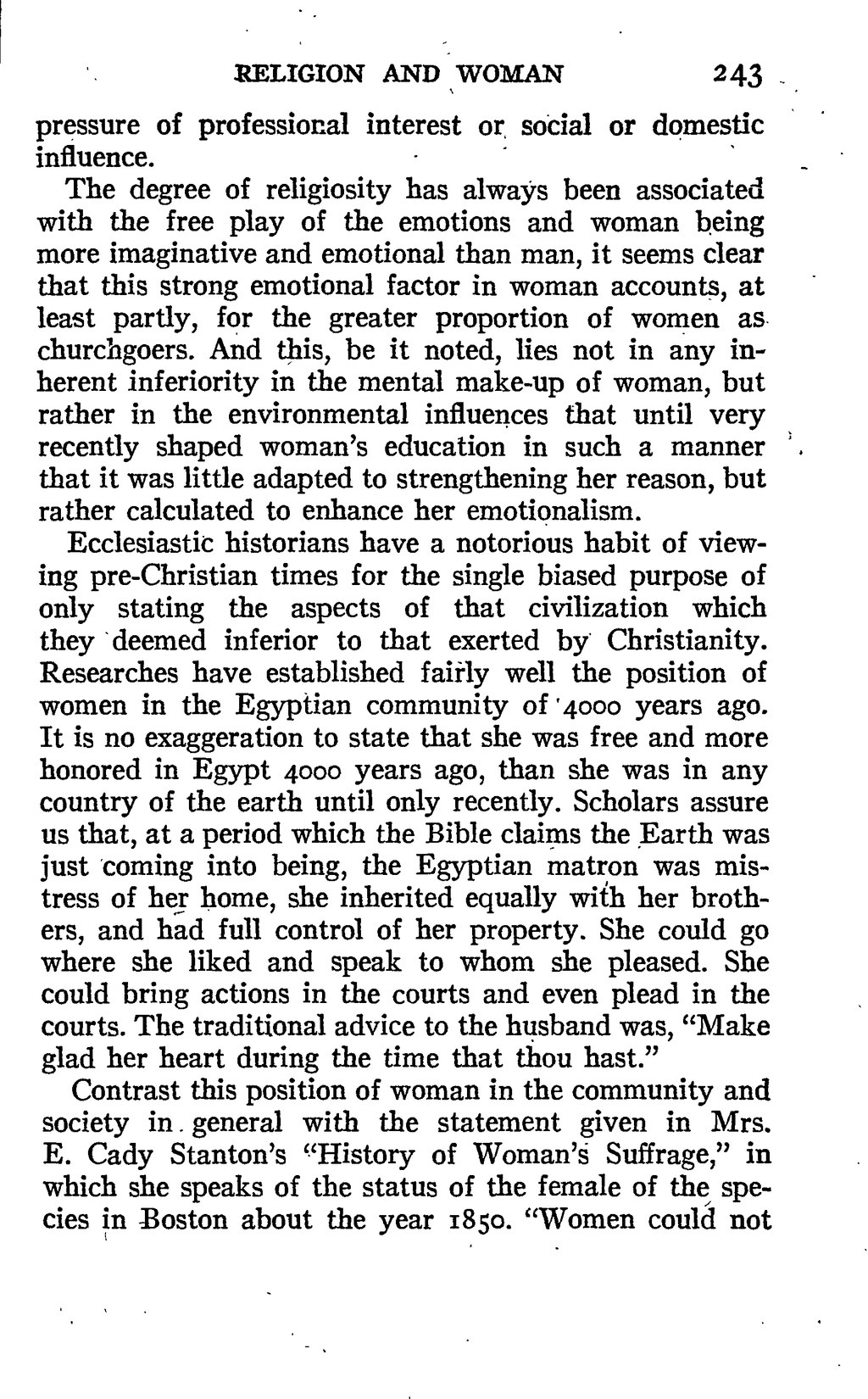pressure of professional interest or social or domestic influence.
The degree of religiosity has always been associated with the free play of the emotions and woman being more imaginative and emotional than man, it seems clear that this strong emotional factor in woman accounts, at least partly, for the greater proportion of women as churchgoers. And this, be it noted, lies not in any inherent inferiority in the mental make-up of woman, but rather in the environmental influences that until very recently shaped woman's education in such a manner that it was little adapted to strengthening her reason, but rather calculated to enhance her emotionalism.
Ecclesiastic historians have a notorious habit of viewing pre-Christian times for the single biased purpose of only stating the aspects of that civilization which they deemed inferior to that exerted by Christianity. Researches have established fairly well the position of women in the Egyptian community of 4000 years ago. It is no exaggeration to state that she was free and more honored in Egypt 4000 years ago, than she was in any country of the earth until only recently. Scholars assure us that, at a period which the Bible claims the Earth was just coming into being, the Egyptian matron was mistress of her home, she inherited equally with her brothers, and had full control of her property. She could go where she liked and speak to whom she pleased. She could bring actions in the courts and even plead in the courts. The traditional advice to the husband was, "Make glad her heart during the time that thou hast."
Contrast this position of woman in the community and society in general with the statement given in Mrs. E. Cady Stanton's "History of Woman's Suffrage," in which she speaks of the status of the female of the species in Boston about the year 1850. "Women could not
